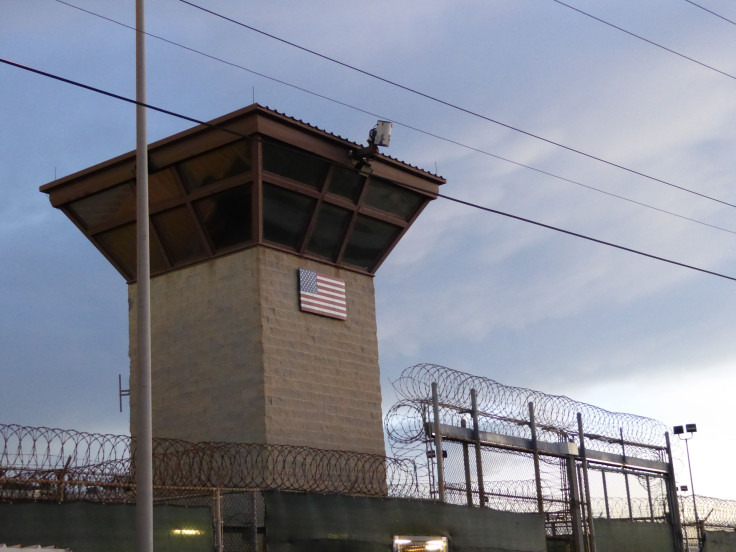
Upon returning to the White House, President Donald Trump promised to use and expand the Guantanamo Bay naval base in Cuba to house migrants waiting for deportation. Although that operation has largely come to a halt amid legal battles, a Brazilian transgender asylum seeker is now telling her experience in detention, where, she says, she was forced to expose herself in front of other detainees, given little food, and denied contact with her family and lawyer.
Tarlis Marcon De Barros Goncalves entered the U.S. on Feb. 15, seeking asylum from repeated threats to her life in Brazil. However, she was immediately detained at Otero County Processing Center, an Immigration and Customs Enforcement (ICE) jail in New Mexico until roughly February 26, when she was abruptly flown to a U.S. detention center in Guantanamo Bay, Cuba, she recounted in a report published by Them.us.
The woman has now submitted a declaration against U.S. authorities in a federal Washington court, alleging mistreatment in the detention center ranging from lack of food to poor hygiene and beyond. Goncalves says she was held in a cell with five men, where she felt unsafe and was exposed while showering and using the toilet.
The woman was released from Guantanamo on May 2 following an ordeal she described as "dehumanizing." "I told the guards that I am a transgender woman and that I didn't feel comfortable or safe being housed with men, but they didn't care or do anything to address my concerns," she said.
"Every time I went to the bathroom or when I showered, I was in view of everyone— there was no door to provide me with any privacy," Goncalves added. "As a woman, it was a dehumanizing experience." She said she was routinely searched by male guards every time she went outside or returned to her cell; she and other detainees were only allowed outside 25 minutes each day, she said, and were given "very little food" which left her "constantly hungry."
Goncalves further alleged that although she had not signed any deportation paperwork and feared for her life if forced to return to Brazil, ICE refused to allow her to contact a lawyer or family.
"I repeatedly stated that I was afraid to go back to Brazil and asked many times to speak to my family and my attorney while I was at Guantanamo. I was refused each time," Goncalves wrote in her complaint. "I was also not given any information— orally or written— about my right to call an attorney."
The Brazilian woman's declaration is part of the ongoing lawsuit Espinoza Escalona vs. Noem, where 10 individuals sued the Trump administration to halt the transfer of immigrants from the United States to Guantanamo Bay. Goncalves herself is not included as the plaintiffs in the case.
Guantanamo Bay has become a staple of the second Trump administration, showing the lengths it is willing to take to carry out its mass deportation efforts. However, last month, U.S. authorities removed migrants held there as a federal court weighed the challenge by civil rights advocates to hold immigrants in Cuba.
According to the civil rights groups who filed the case, which included the ACLU, the transfer of detained immigrants to the naval base "constitutes an unlawful removal" and violates the Immigration and Nationality Act.
© 2025 Latin Times. All rights reserved. Do not reproduce without permission.




